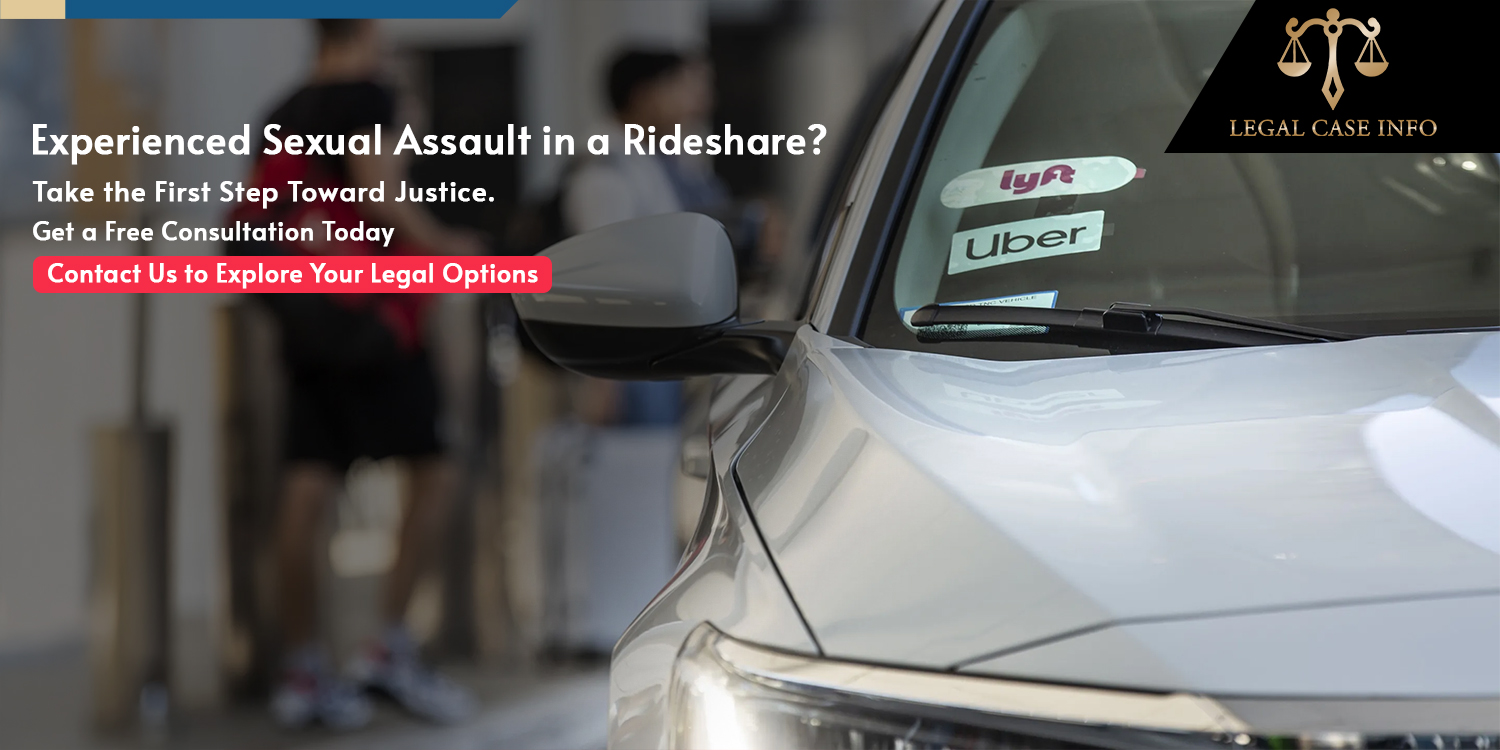
Rideshare Sexual Assault Lawsuits: Making Justice Accessible for Victims
The rise of ridesharing services like Uber and Lyft has transformed transportation, offering convenience and accessibility to millions of users. However, alongside this revolution, alarming reports of sexual assault by rideshare drivers have surfaced, exposing a glaring gap in passenger safety. For victims of these traumatic incidents, legal avenues are available to hold rideshare companies accountable for their failure to protect passengers.
Understanding Rideshare Sexual Assault Lawsuits
Sexual assault in rideshare vehicles often stems from the negligence of companies to implement adequate safety measures. Victims have filed lawsuits against Uber and Lyft, alleging that these companies failed to:
- Adequately screen drivers.
- Remove drivers with a history of misconduct.
- Respond appropriately to passenger complaints.
- Introduce sufficient in-app safety features to protect riders.
Recent data reveals the extent of the problem. Uber’s 2022 safety report documented 3,824 sexual assaults between 2019 and 2020, while a Lyft report highlighted over 4,000 sexual assaults between 2017 and 2019. Despite such statistics, victims argue that these companies have not taken enough steps to prevent these incidents.
Survivors Taking Legal Action
Brave survivors of rideshare sexual assaults have taken a stand by filing lawsuits to seek justice and accountability. For instance:
- In January 2024, a woman filed a lawsuit against Lyft, alleging a 2019 assault by her driver that deeply affected her life.
- Another case involved a New York City woman suing Uber over allegations of kidnapping and rape by a driver.
These cases are not isolated; they represent a growing movement of survivors stepping forward to demand change. Some lawsuits have led to undisclosed settlements, emphasizing the need for accountability and systemic improvements.
How Rideshare Companies Have Responded
In response to these allegations, rideshare companies have introduced several safety initiatives, including:
- Background checks using services like Checkr to screen for violent and sexual offenses.
- Safety features such as Women+ Connect, which pairs riders with women or nonbinary drivers.
- Sexual misconduct training for drivers.
While these efforts indicate progress, critics argue that more comprehensive measures are necessary to ensure passenger safety.
Filing a Rideshare Sexual Assault Lawsuit
Victims of rideshare sexual assault may be eligible to file a lawsuit if they experienced harm during or after a ride. Legal action can help victims seek compensation for medical expenses, counseling, lost wages, and emotional distress. The process typically involves:
- A free case review to determine eligibility.
- Collection of evidence such as medical records, police reports, and complaints.
- Filing the lawsuit before the statute of limitations expires.
- Negotiating settlements or presenting the case in court.
Multidistrict Litigation (MDL) for Rideshare Assault Cases
Rather than pursuing individual lawsuits, many victims join multidistrict litigation (MDL), a process that consolidates similar cases for streamlined legal proceedings. This approach amplifies the voices of survivors and holds rideshare companies collectively accountable.
Advocacy and Support for Survivors
Survivors of sexual assault often face significant emotional and psychological challenges. Legal experts and advocates emphasize the importance of supporting victims through compassionate representation and clear guidance. Resources are available for survivors seeking justice, ensuring that they are not alone in their journey.
A Call for Safer Ridesharing
The stories of survivors underscore the urgent need for transparency, vigilance, and accountability in ridesharing. While companies have taken steps to address these issues, continuous improvement is essential to build trust and ensure that every passenger can ride safely.
If you or someone you know has experienced sexual assault during a rideshare, LegalCaseInfo is here to help. Our platform simplifies the legal process, offering resources and guidance to help you navigate this difficult time. Taking action not only helps secure justice but also contributes to the collective effort to create safer ridesharing experiences for all. Visit LegalCaseInfo to explore your legal options today.
